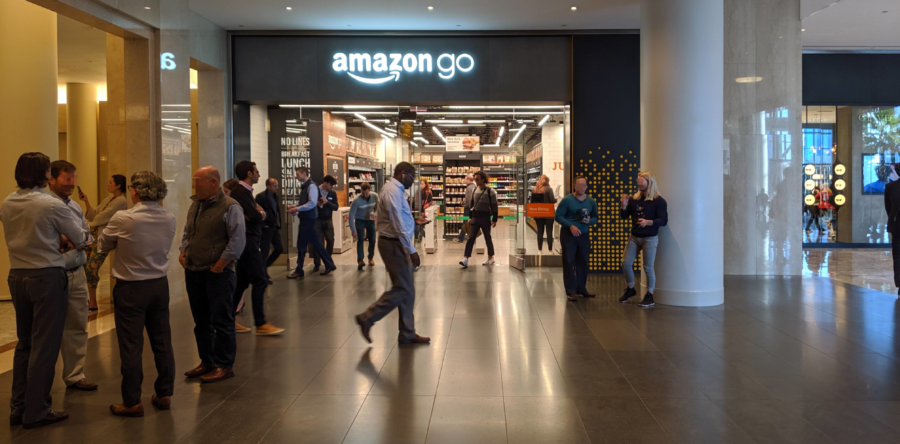These are media-rich and ultimately humorous examples of a strategy that Jeff Bezos himself maintains out of a fundamental and very serious conviction. During the conversation with Mathias Döpfner, CEO of Axel Springer SE, on the occasion of the Axel Springer Award 2018, Jeff Bezos talks about the small and big dramas of Amazon’s early days. For example, just a few years after Amazon’s launch, when the company had only about 125 employees, Barnes & Noble, the largest U.S. book retailer, went online. The entire U.S. media landscape ran headlines about Amazon’s destruction by its 30,000-strong rival, which already seemed overpowering with 10 years of experience in book retailing.
The threat seemed so great that concerned mothers of employees who followed the news surrounding the online bookseller on radio and television feared for their children’s professional future with the company. There was a gnawing atmosphere of uncertainty in the rooms of the fledgling corporation as Jeff Bezos admitted their concerns to the entire staff in a meeting. However, he seamlessly emphasized, one should not be afraid of competitors. His explanation was simple as it was true: they (the competitors) will never give us any money. The only people you should fear are your own customers. So instead of obsessively chasing the big competition, everything would be fine as long as you focused on the customer as a company.[3] The rest is history.

Photo: Pixabay
Is there still disruption?
According to Matthias Horx, founder of the Zukunftsinstitut and “the most influential trend and futurologist in the German-speaking world,” it has been questionable since 2018 at the latest whether disruption will still be a topic at all in 2020.[4] The future of the economy and society as a whole will be a key issue. Even if, or especially if, in the middle of this year, the U.S. Secretary of the Treasury, Steven Mnuchin, is still talking about the destruction of retail by Amazon and wants to subject the corporation to a competition law investigation by “the Department of Justice,”[5] this path certainly does not mean the solution.
This is because it is in your hands, in our hands. We would be happy to help you take a close look at what your customers want and where there are opportunities for improvement at the PoS. Amazon Go stores in New York and perhaps soon in Europe are not the threat. The real threat is to ignore the wishes of customers, not to evolve. We’d even go so far as to say that the news Amazon goes brick-and-mortar is proof of how untapped retail resources are. Be visionary together with us and let us design the PoS of the future. Our ideas certainly do not end with classic models of merchandising or sales promotion. Rather, we want to create first-class and modern concepts of customer loyalty. Give us a call – yes, it’s that simple – and we’ll discuss with you individually and tailored to your company how we can optimize your presence in the market.
Sources:
Cover image by Nikolas Capella
[1] Reddit Storytime, Elon Musk “Jeff who?
[2] U.a.Welt.de
[3] The entire interview: Business Insider, Jeff Bezos Talks Amazon, Blue, Origin, Family and Wealth. 2018
[4] Matthias Horx, The Myth of Disruption, 2018
[5] Source: n-tv,Rubrik: Wirtschaft, “Hat den Einzelhandel zerstört” – US Treasury Secretary rages against Amazon, July 2019.

